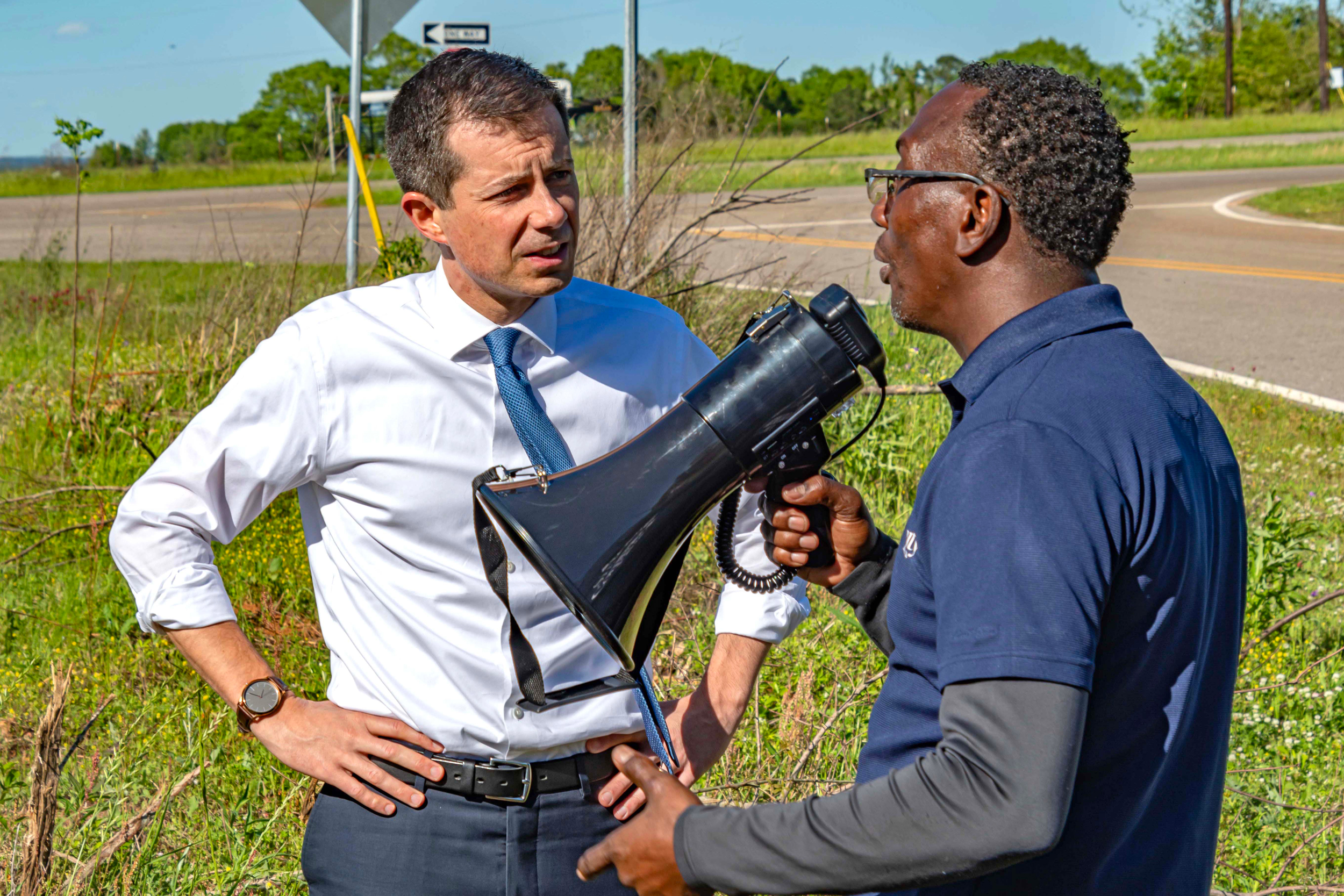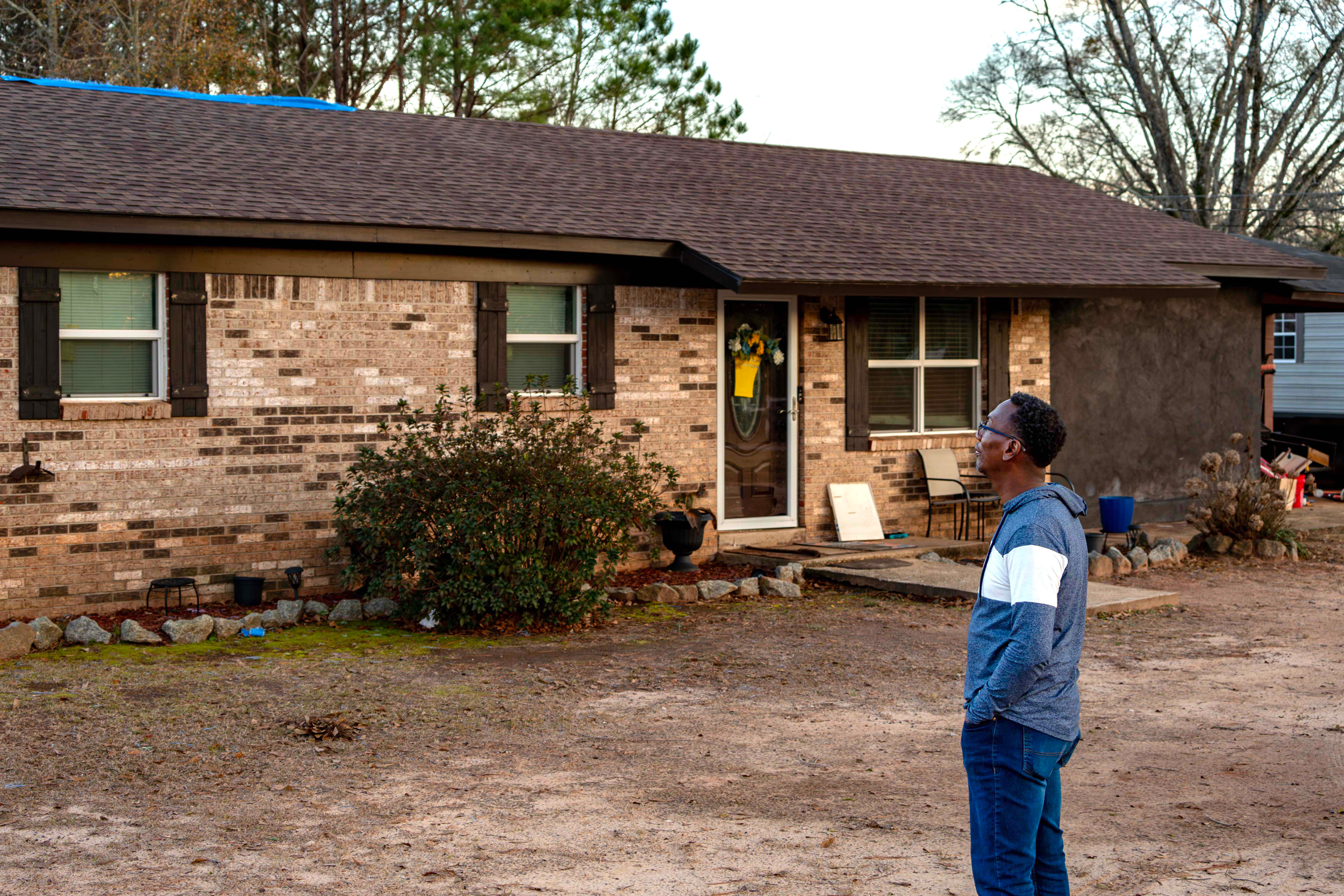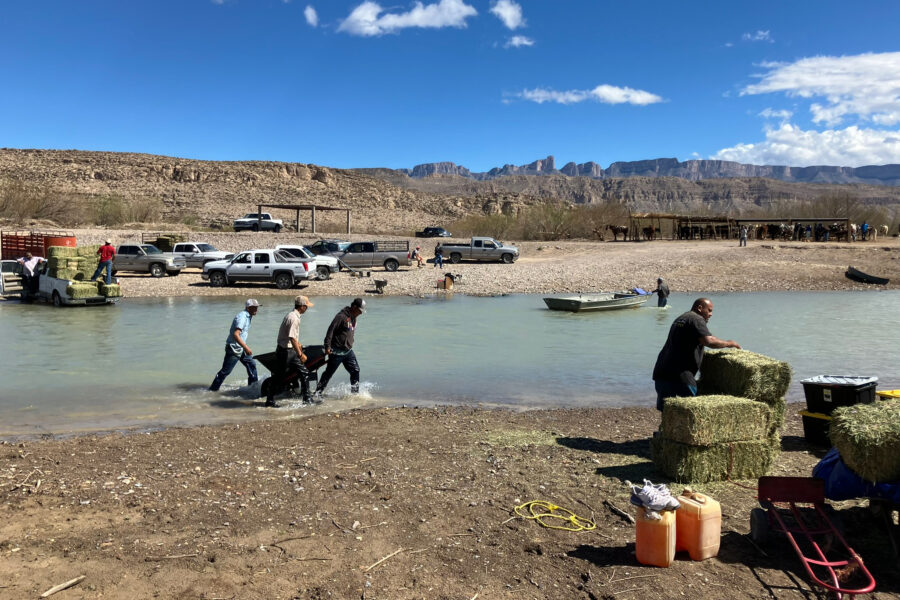SHILOH COMMUNITY, Ala.—Pastor Timothy Williams didn’t hold back as he stood in front of his home in late January, just days after the inauguration of a new presidential administration. His disappointment was apparent.
“We thought they were going to do what they said they were going to do,” Williams said of the outgoing Biden administration.
Less than a year before, in March 2024, Transportation Secretary Pete Buttgieg had visited the historically Black community and promised a “whole-of-government” approach to addressing an issue that’s been plaguing residents for years—the expansion and elevation of Highway 84 that has left their homes inundated by rainwater again and again.
During the tour, Buttigieg heard from people like Willie Horstead, Jr., an elderly Army veteran whose trailer was slowly sinking into the Alabama mud from repeated flooding.
“All where we’re standing right now, there is nothing but water here when there’s a good rain,” Horstead told Buttigieg. “I’ll tell you—I just want to be made whole.”
Buttigieg then stood in Williams’ front yard and promised the community help.
“There is no way I’m going to forget what I just heard,” Buttigieg told Shiloh residents. The issues facing Shiloh are being worked on “at the highest levels of our department,” he said.
“I don’t claim to have a magic wand on me, but I have a lot of tools,” he told them. That can involve both tools to ensure state officials “treat people well” and tools that allow federal officials to channel funds directly to communities, he said.
The day of the secretary’s visit to Shiloh, officials announced a Voluntary Resolution Agreement between federal and state officials, with the Alabama Department of Transportation agreeing to conduct additional infrastructure construction they claimed would mitigate the flooding in Shiloh.

As weeks and months passed following Buttigieg’s visit, Shiloh residents saw no changes on the ground and chose to pressure the administration, calling on Biden and other federal officials to step in and act immediately and decisively to fix the problem.
Still, help didn’t come.
Now, as President Donald Trump assumes power, Williams said Shiloh residents wonder what the future holds even as they are coming to grips with what happened in the last days of the Biden presidency—and what didn’t.
“The whole community feels let down,” he said.
This story is funded by readers like you.
Our nonprofit newsroom provides award-winning climate coverage free of charge and advertising. We rely on donations from readers like you to keep going. Please donate now to support our work.
Donate NowAs he spoke, cars and 18-wheelers rolled by on Highway 84, its pavement nearly level with the roof of Williams’ home just a few yards away. Residents had believed, even once Trump secured the presidency in November, that Shiloh’s flooding problem would be addressed before the changing of the guard. No such luck, Williams said.
“They lied to us,” he said. “They gave us false hope.”
Visiting Shiloh was a political move, Williams said, not a sincere one. Williams said he would not vote for Buttigieg in a Democratic presidential primary and would have to think deeply about voting for Kamala Harris, Biden’s vice president, in future elections.

Williams said residents in Shiloh feel that the federal government, through agencies like the DOT, the Federal Highway Administration and others, should have used discretionary funding to directly mitigate the flooding in Shiloh themselves, leaving Alabama—an entity the community considers a fundamental part of the problem—totally out of the equation.
Trump’s presidency also presents a new question: Will the agreement reached between Alabama and the previous administration still stand? Neither state nor federal transportation officials responded to requests for comment on the status of the resolution agreement.
Asked what comes next, Williams said he believes Trump should address a problem that began under his administration, as construction on the expansion of Highway 84 was completed in 2018.
“He should fix what he messed up,” Williams said. “He should come fix this highway problem and make this community whole.”
About This Story
Perhaps you noticed: This story, like all the news we publish, is free to read. That’s because Inside Climate News is a 501c3 nonprofit organization. We do not charge a subscription fee, lock our news behind a paywall, or clutter our website with ads. We make our news on climate and the environment freely available to you and anyone who wants it.
That’s not all. We also share our news for free with scores of other media organizations around the country. Many of them can’t afford to do environmental journalism of their own. We’ve built bureaus from coast to coast to report local stories, collaborate with local newsrooms and co-publish articles so that this vital work is shared as widely as possible.
Two of us launched ICN in 2007. Six years later we earned a Pulitzer Prize for National Reporting, and now we run the oldest and largest dedicated climate newsroom in the nation. We tell the story in all its complexity. We hold polluters accountable. We expose environmental injustice. We debunk misinformation. We scrutinize solutions and inspire action.
Donations from readers like you fund every aspect of what we do. If you don’t already, will you support our ongoing work, our reporting on the biggest crisis facing our planet, and help us reach even more readers in more places?
Please take a moment to make a tax-deductible donation. Every one of them makes a difference.
Thank you,













